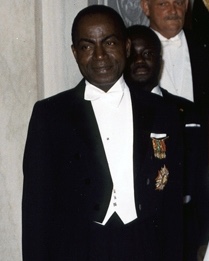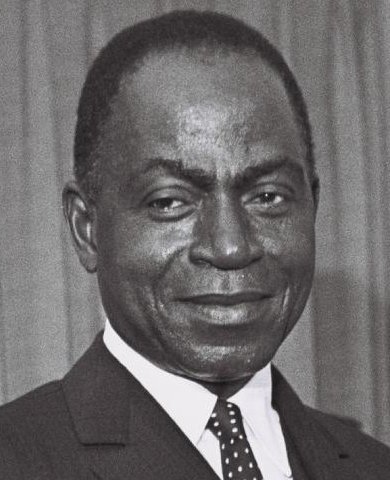|
Seydou Diarra
Seydou Elimane Diarra (23 November 1933 – 19 July 2020) was an Ivorian politician, who served as the Prime Minister in 2000 and again from 2003 to 2005. Life and career Diarra was born on 23 November 1933 in Katiola."Le gouvernement de transition de Côte d'Ivoire formé le 4 janvier 2000" , ''Afrique Express'' . Prior to joining the government, he was an Ambassador to the European Economic Community and and was President of the Chamber of Commerce and Industry of Ivory Coast. After the Decem ... [...More Info...] [...Related Items...] OR: [Wikipedia] [Google] [Baidu] |
List Of Heads Of Government Of Ivory Coast ...
This article lists the heads of government of Ivory Coast, officially the Republic of Côte d'Ivoire, since the country gained independence from France in 1960. Patrick Achi currently serves as Prime Minister of Ivory Coast. List Key ;Political parties * * * * ;Other factions * Officeholders Notes See also *Ivory Coast **List of heads of state of Ivory Coast ** List of colonial governors of Ivory Coast ** Politics of Ivory Coast *Lists of office-holders References Sources * ''Guinness Book of Kings Rulers & Statesmen'', Clive Carpenter, Guinness Superlatives Ltd. {{Heads of state and government of Africa Government of Ivory Coast *List Cote d'Ivoire, List of Prime Ministers of heads of government The head of government is the highest or the second-highest official in the executive branch of a sovereign state, a federated state, or a self-governing colony, autonomous region, or other government who often presides over a cabinet, a g ... [...More Info...] [...Related Items...] OR: [Wikipedia] [Google] [Baidu] |
Robert Guéï
Robert Guéï (; 16 March 1941 – 19 September 2002) was the military ruler of the Ivory Coast from 24 December 1999 to 26 October 2000. Biography Guéï was born in Kabakouma, a village in the western Man Department, and was a member of the Yacouba ethnic community. He was a career soldier: under the French administration, he was trained at the Ouagadougou military school and the St Cyr military school in France. He was an ardent supporter of longtime President Félix Houphouët-Boigny, who in 1990 appointed him chief of the army following a mutiny. After the death of Houphouët-Boigny in 1993, Guéï became distanced from the new leader Henri Konan Bédié. Guéï's refusal to mobilize his troops to resolve a political struggle between Bédié and the opposition leader Alassane Ouattara in October 1995 led to his dismissal. He was made a minister but sacked again in August 1996 and forced out of the army in January 1997. Bédié was overthrown in a coup on Christma ... [...More Info...] [...Related Items...] OR: [Wikipedia] [Google] [Baidu] |
Ambassadors Of Ivory Coast To The European Union
An ambassador is an official envoy, especially a high-ranking diplomat who represents a state and is usually accredited to another sovereign state or to an international organization as the resident representative of their own government or sovereign or appointed for a special and often temporary diplomatic assignment. The word is also used informally for people who are known, without national appointment, to represent certain professions, activities, and fields of endeavor, such as sales. An ambassador is the ranking government representative stationed in a foreign capital or country. The host country typically allows the ambassador control of specific territory called an embassy, whose territory, staff, and vehicles are generally afforded diplomatic immunity in the host country. Under the Vienna Convention on Diplomatic Relations, an ambassador has the highest diplomatic rank. Countries may choose to maintain diplomatic relations at a lower level by appointing a chargé d'affa ... [...More Info...] [...Related Items...] OR: [Wikipedia] [Google] [Baidu] |
People From Vallée Du Bandama District
A person ( : people) is a being that has certain capacities or attributes such as reason, morality, consciousness or self-consciousness, and being a part of a culturally established form of social relations such as kinship, ownership of property, or legal responsibility. The defining features of personhood and, consequently, what makes a person count as a person, differ widely among cultures and contexts. In addition to the question of personhood, of what makes a being count as a person to begin with, there are further questions about personal identity and self: both about what makes any particular person that particular person instead of another, and about what makes a person at one time the same person as they were or will be at another time despite any intervening changes. The plural form "people" is often used to refer to an entire nation or ethnic group (as in "a people"), and this was the original meaning of the word; it subsequently acquired its use as a plural form of p ... [...More Info...] [...Related Items...] OR: [Wikipedia] [Google] [Baidu] |
Heads Of Government Of Ivory Coast
A head is the part of an organism which usually includes the ears, brain, forehead, cheeks, chin, eyes, nose, and mouth, each of which aid in various sensory functions such as sight, hearing, smell, and taste. Some very simple animals may not have a head, but many bilaterally symmetric forms do, regardless of size. Heads develop in animals by an evolutionary trend known as cephalization. In bilaterally symmetrical animals, nervous tissue concentrate at the anterior region, forming structures responsible for information processing. Through biological evolution, sense organs and feeding structures also concentrate into the anterior region; these collectively form the head. Human head The human head is an anatomical unit that consists of the skull, hyoid bone and cervical vertebrae. The term "skull" collectively denotes the mandible (lower jaw bone) and the cranium (upper portion of the skull that houses the brain). Sculptures of human heads are generally based on a sk ... [...More Info...] [...Related Items...] OR: [Wikipedia] [Google] [Baidu] |
Ivorian Muslims
Ivorian may refer to: Country * Something of, from, or related to the country of Ivory Coast * A person from Ivory Coast, or of Ivorian descent (for information about the Ivorian people, see Demographics of Ivory Coast and Culture of Ivory Coast) ** Specified Persons List of Ivorians * Note that there is no language called "Ivorian" (for languages spoken in Ivory Coast, see Languages of Ivory Coast Ivory Coast (french: Côte d'Ivoire) is a multilingual country with an estimated 78 languages currently spoken. [...More Info...] [...Related Items...] OR: [Wikipedia] [Google] [Baidu] |
2020 Deaths
This is a list of deaths of notable people, organised by year. New deaths articles are added to their respective month (e.g., Deaths in ) and then linked here. 2022 2021 2020 2019 2018 2017 2016 2015 2014 2013 2012 2011 2010 2009 2008 2007 2006 2005 2004 2003 2002 2001 2000 1999 1998 1997 1996 1995 1994 1993 1992 1991 1990 1989 1988 1987 See also * Lists of deaths by day * Deaths by year {{DEFAULTSORT:deaths by year ... [...More Info...] [...Related Items...] OR: [Wikipedia] [Google] [Baidu] |
1933 Births
Events January * January 11 – Sir Charles Kingsford Smith makes the first commercial flight between Australia and New Zealand. * January 17 – The United States Congress votes in favour of Philippines independence, against the wishes of U.S. President Herbert Hoover. * January 28 – " Pakistan Declaration": Choudhry Rahmat Ali publishes (in Cambridge, UK) a pamphlet entitled ''Now or Never; Are We to Live or Perish Forever?'', in which he calls for the creation of a Muslim state in northwest India that he calls " Pakstan"; this influences the Pakistan Movement. * January 30 ** National Socialist German Workers Party leader Adolf Hitler is appointed Chancellor of Germany by President of Germany Paul von Hindenburg. ** Édouard Daladier forms a government in France in succession to Joseph Paul-Boncour. He is succeeded on October 26 by Albert Sarraut and on November 26 by Camille Chautemps. February * February 1 – Adolf Hitler gives his "Proclamation ... [...More Info...] [...Related Items...] OR: [Wikipedia] [Google] [Baidu] |
African Union
The African Union (AU) is a continental union consisting of member states of the African Union, 55 member states located on the continent of Africa. The AU was announced in the Sirte Declaration in Sirte, Libya, on 9 September 1999, calling for the establishment of the African Union. The bloc was founded on 26 May 2001 in Addis Ababa, Ethiopia, and launched on 9 July 2002 in Durban, South Africa. The intention of the AU was to replace the Organisation of African Unity (OAU), established on 25 May 1963 in Addis Ababa by 32 signatory governments; the OAU was disbanded on 9 July 2002. The most important decisions of the AU are made by the Assembly of the African Union, a semi-annual meeting of the heads of state and government of its member states. The AU's secretariat, the African Union Commission, is based in Addis Ababa. The largest city in the AU is Lagos, Nigeria, while the list of urban areas in Africa by population, largest urban agglomeration is Cairo, Egypt. The African U ... [...More Info...] [...Related Items...] OR: [Wikipedia] [Google] [Baidu] |
Laurent Gbagbo
Koudou Laurent Gbagbo , FPI website . ( Gagnoa Bété: ; ; born 31 May 1945) is an Ivorian politician who was the from 2000 until his arrest in April 2011. A historian, Gbagbo was imprisoned in the early 1970s and again in the early 1990s, and he lived in exile in France during much of the 1980s as a result of his union activism. Gbagbo founded the Ivorian Popular Front (FPI) in 1982 and ran unsuccessfully for president against [...More Info...] [...Related Items...] OR: [Wikipedia] [Google] [Baidu] |
First Ivorian Civil War
The First Ivorian Civil War was a civil conflict in the Ivory Coast (also known as Côte d'Ivoire) that began with a military rebellion on 19 September 2002 and ended with a peace agreement on 4 March 2007. The conflict pitted the government of Ivorian President Laurent Gbagbo against a domestic insurgency led by the New Forces of Ivory Coast (''Forces nouvelles de Côte d'Ivoire''). The war was preceded by a tumultuous decade in Ivory Coast, marked by an economic downturn and, following the death of long-time Ivorian President Félix Houphouët-Boigny in December 1993, a leadership succession crisis. The succession crisis manifested in a 1999 military coup d'état and a violent dispute over the result of the 2000 presidential election. Three successive Ivorian leaders – Henri Konan Bédié from 1993, Robert Guéï from 1999, and Gbagbo from 2000 – exploited the ideology of Ivoirité to repress and marginalise political opposition, notably by disqualifying Alassane O ... [...More Info...] [...Related Items...] OR: [Wikipedia] [Google] [Baidu] |

.jpg)
_1938.jpg)



